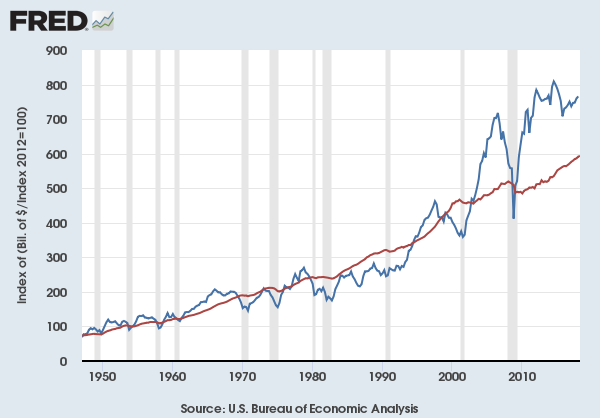Resistance To Power
Related posts
Posts on The Dawn Of Everything: Link
Posts on Pierre Bourdieu and Symbolic Violence: link
Posts trying to cope with the absurd state of political discourse: link
Posts on Freedom and Equality. link
As we saw in the first post in this series, Foucault’s method is to think about power by considering the forms of resistance to power. He chooses three examples, the power of men over women, the power of parents over children, and the power of psychiatrists over mental illness. He identifies six things these struggles have in common.
- They are universal; they’re happening around the world. As an example, New Zealand is going to give 16-year olds the right to vote. Across the globe, the very young are leading the charge for climate action.
- The struggles are over power itself. His example is that the medical profession is attacked because of its domination of the bodies of others, not because it is a bunch of money-grubbers empowered by the State to suck up all the money.
- These are current struggles against an immediate power demanding an immediate solution. Women refuse to be controlled by any man in their lives. Foucault thinks this struggle is not against some distant enemy male, but that seems wrong to me. Male power is entrenched at all levels of society. He adds that women want action now.
- These struggles are about each specific individual. They assert the right to be different, At the same time, they rebel against institutional conditions set by the dominant class, conditions which separate individuals from their chosen communities. They resist the power of the government, and of society acting through the government, to tie individuals to an identity in a constraining way. I think this means, for example, that people are not to be identified solely as mentally ill, or children as dependents, when in both cases they can participate in the broader scope of social interactions.
- These struggles are against power generated by knowledge, whether that knowledge is arcane, as in the case of psychiatry, or secret and traditional, as in the case of the patriarchy. “What is questioned is the way in which knowledge circulates and functions, its relations to power.”
- In each case, individuals assert their right to determine their own identities, free from the claims of other people, either as individuals or collectively in the form of the government or a profession.
Summarizing, he explains that each of these struggles is against one form of power relation.
This form of power applies itself to immediate everyday life which categorizes the individual, marks him by his own individuality, attaches him to his own identity, imposes a law of truth on him which he must recognize and which others have to recognize in him. It is a form of power which makes individuals subjects.
Foucault describes three poles of these struggles.
- Struggles against domination, through ethnicity, social class, or religion.
- Struggles against exploitation, which means economic domination.
- Struggles against being shoved into niches and forced into being submissive.
Most historic struggles can be seen as combinations of these three strains of resistance. For example, Foucault says that the main focus of current struggles is the pressure of the state forcing certain people into subjectification. An example might be the power claimed by the government to prohibit abortion. The state identifies a pregnant adult or child as less than an autonomous person, and forces them to subject themselves to unwanted or dangerous childbirth.
The problem is that the modern state holds both individualizing and totalizing power. It has the power to tie people to specific identities, and to treat them differently based on those identities. It is everywhere, and its power reaches everywhere, a “totalizing” power, as he calls it. He says this developed out of the pastoral power, and we’ll take this up next.
Discussion
1. Once again, I note the relation of Foucault’s ideas to those of Pierre Bourdieu and Elizabeth Anderson. Both identify domination as a central issue. Anderson sees it as a violation of human freedom rightly understood. Bourdieu describes the ways people internalize and justify domination. Links above.
2. Foucault is writing in the 1980s, and things have changed. For one thing, rapid communication makes it possible to speed up and broaden the scope of resistance to power, and to organize it more effectively. Thus, young people have used this technology to force the dangers of climate change into public discourse.
3. On first reading, this paper seems highly abstract. I’m trying to add specific examples to make these ideas more concrete, but it’s not easy. As commenters said in the Introduction to this series, Foucault is writing about the last two centuries. But the lessons seem relevant to what we read in The Dawn Of Everything by Graeber and Wengrow.
For example, they talk about rituals of adulthood, the rites by which young men are incorporated into the group through esoteric knowledge such as the powers of totem animals. This gives young men status in the community. Over time this status may have morphed into male domination of women and children through the possession of esoteric knowledge. This process requires women and children to accept the idea that in fact the special knowledge claimed by men is real. Once that happens, it becomes difficult to throw off male domination.
It’s impossible to use Foucault’s method of considering the history of our ancestors as a way of understanding their cultures. We don’t have nearly enough information. But I remain hopeful we can analogize the formation of recent Western cultures to the formation of earlier cultures. That hope is based on the idea that our ancestors were fully human, doing human things, as Graeber and Wengrow think.
4. Republicans oppose all changes to all social structures, Democrats tend to be more supportive. This is a big difference between the parties. I think it’s ane that has deep roots in individual personalities, an issue neither Foucault nor Graeber and Wengrow discuss. I also think it’s really important. It’s not on topic, but here’s a sketch of one explanation.
I think conservatives operate from a fundamentalist view of the world. Fundamentalists think that there is a single truth, and that they know what it is. Thus, fundamentalist Christians believe that the Bible is the sole source of truth. In exactly the same way Sam Alito and several of his SCOTUS colleagues think the Constitution is the sole source of truth about our rights as citizens, and that their Constitutional role includes stating that truth and correcting the errors made by prior versions of SCOTUS. In the political sphere we can describe the fundamentalist view as the idea that there is only one acceptable form of social structure, that that form existed in the past, and it must be recovered.
I think social structures are created by human beings. They should serve human need. As societies change, and as our understanding of the consequences of existing social structures evolves, we should change social structures to match our values. Following Foucault, the first step would be to examine our social structures from an historical perspective: how did we get the social structures we have now?
I think that will be my next step. One important text is Stamped From The Beginning by Ibram X. Kendi. One possible book is The Nation That Never Was: Reconstructing America’s Story, by Kermit Roosevelt. Here’s an interview of Roosevelt in which he discusses the book.




